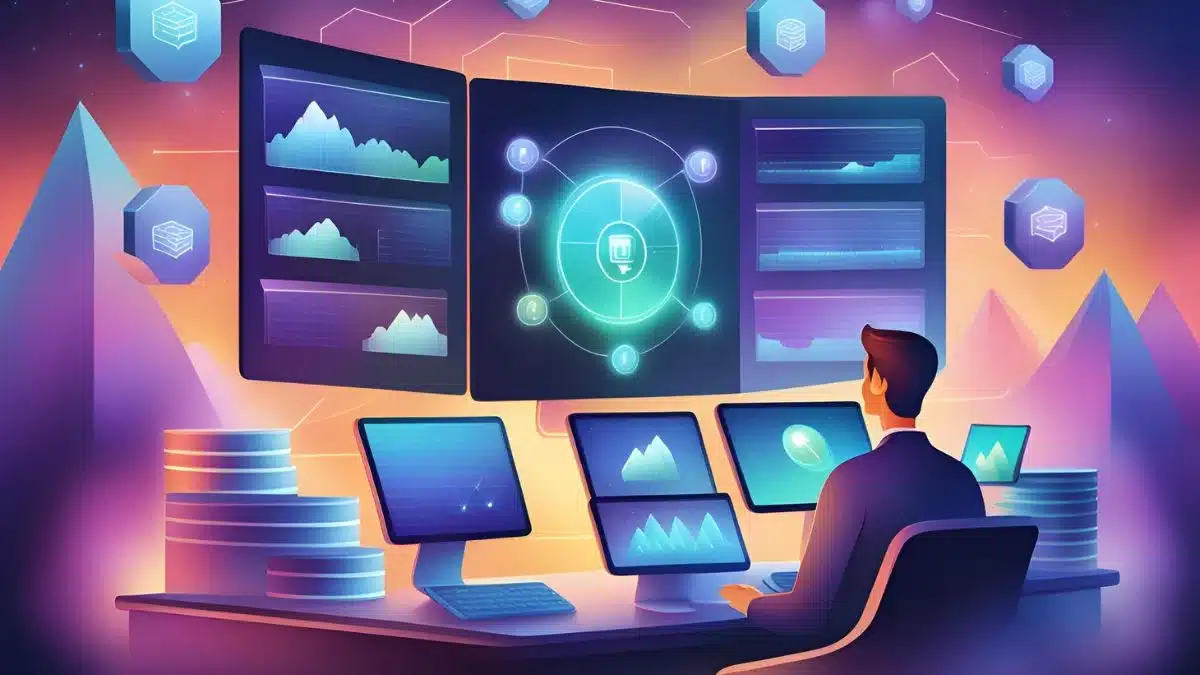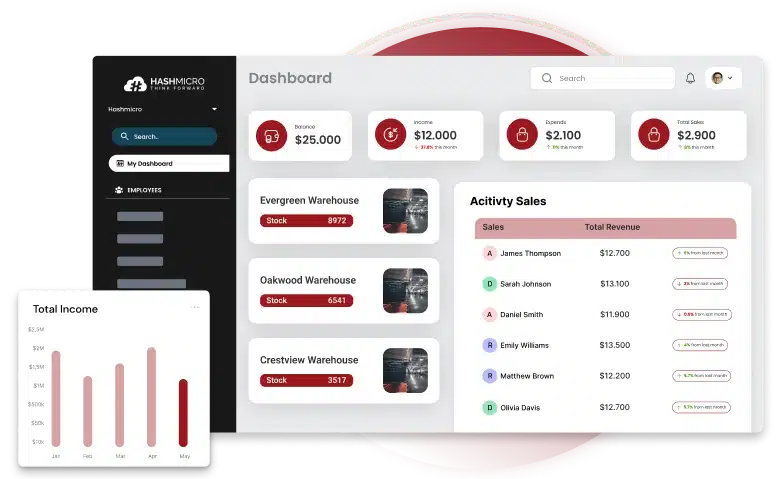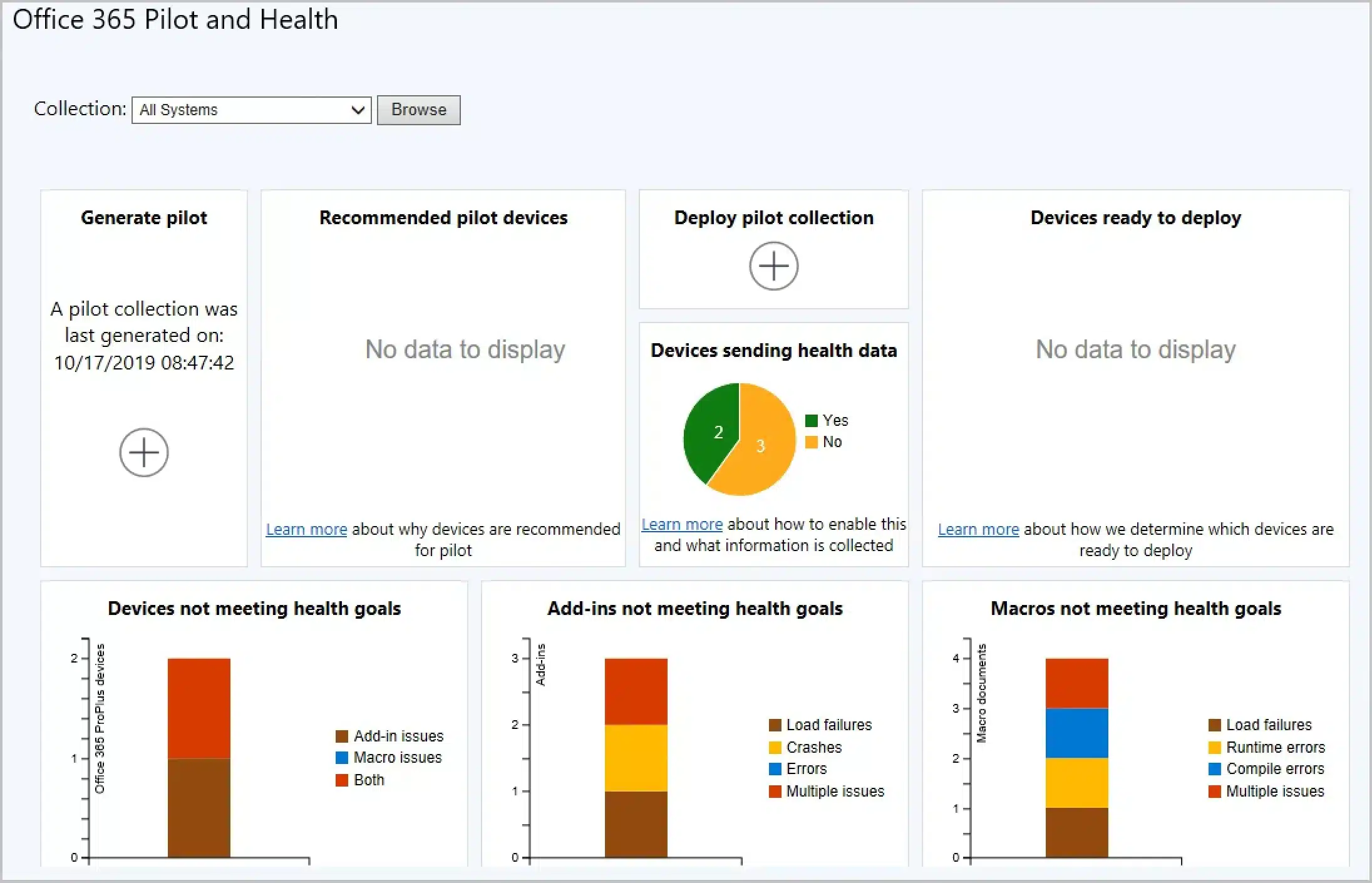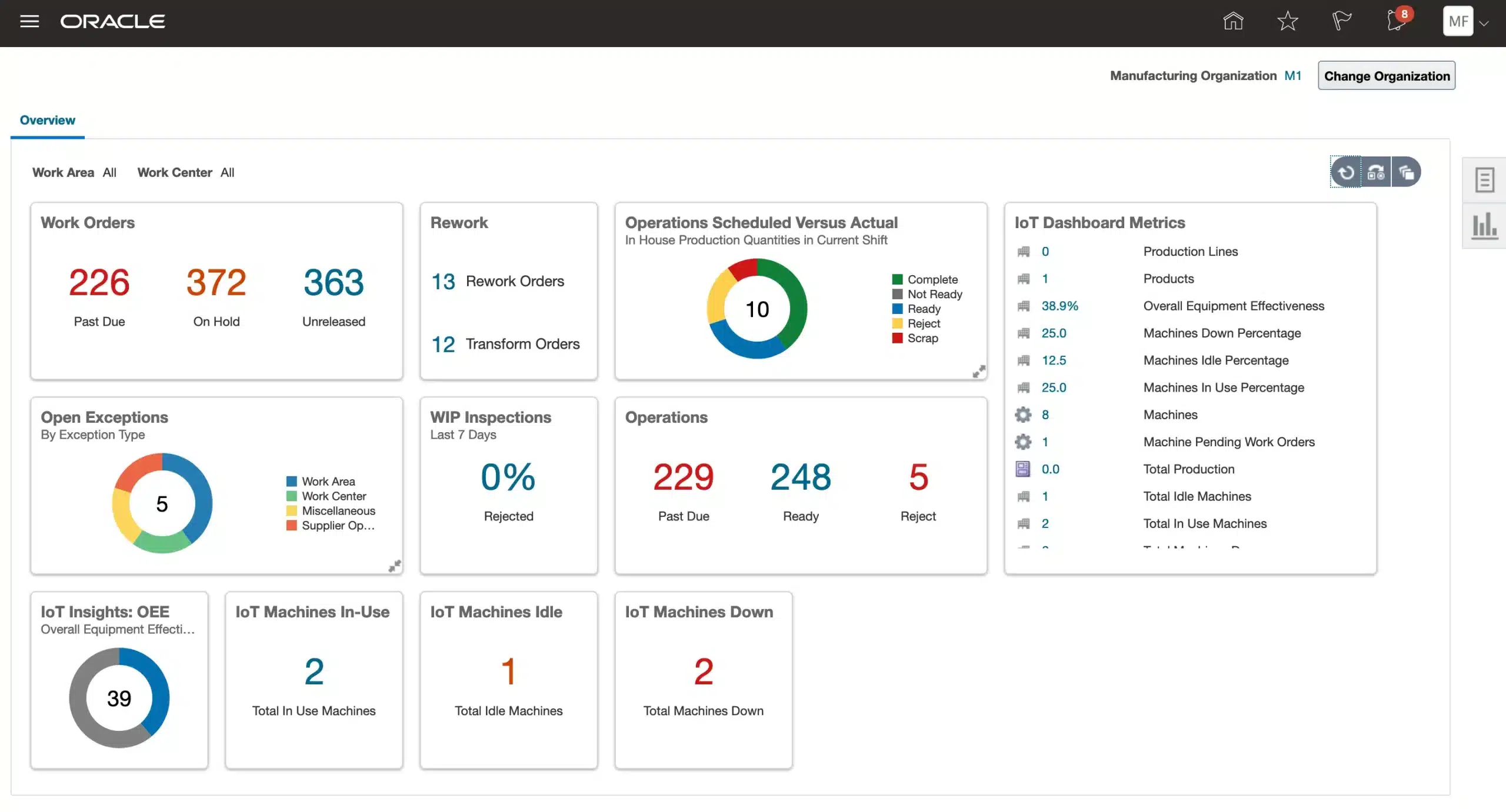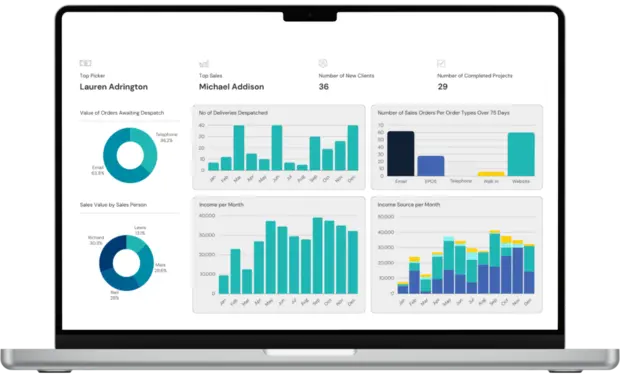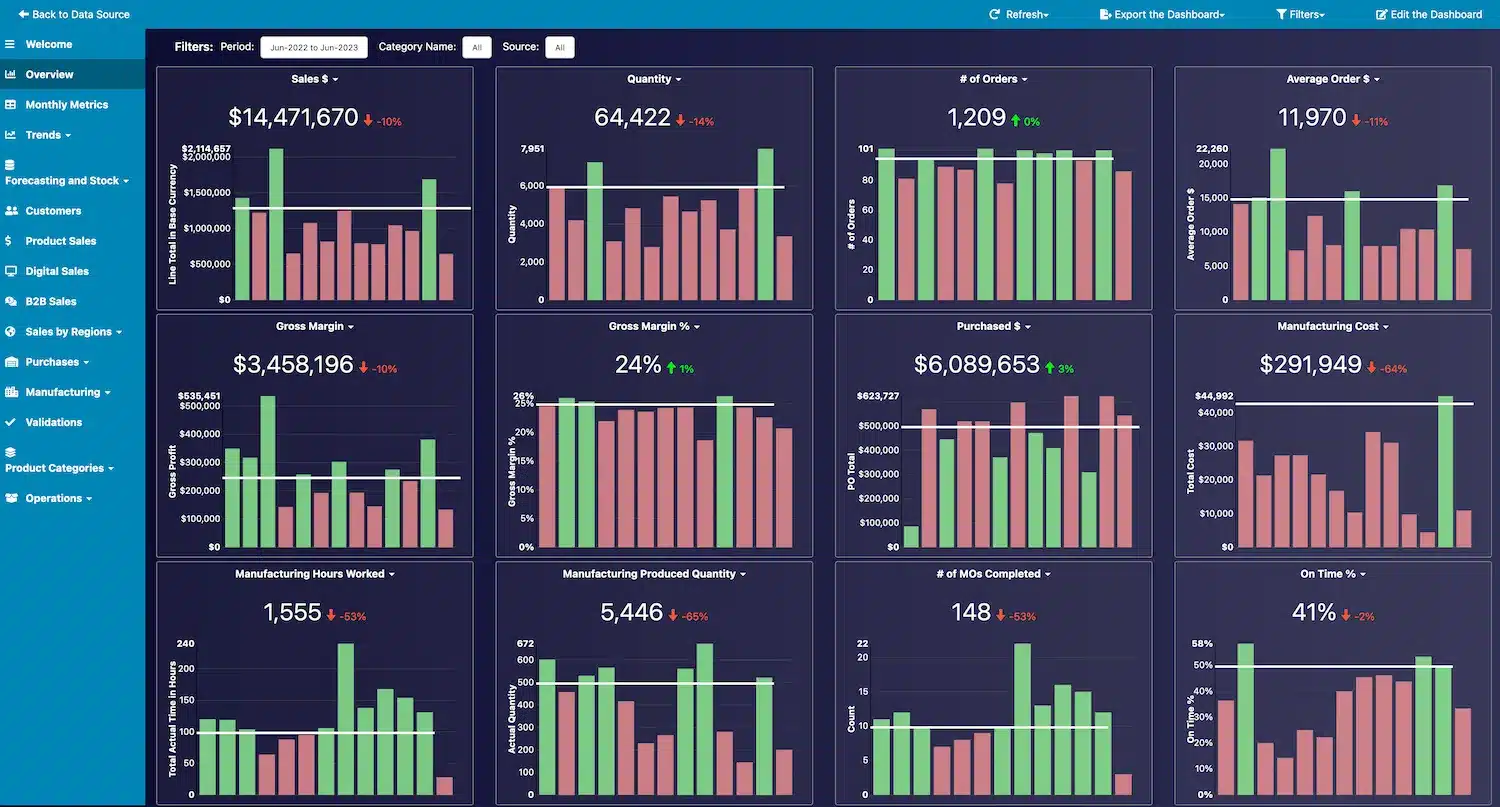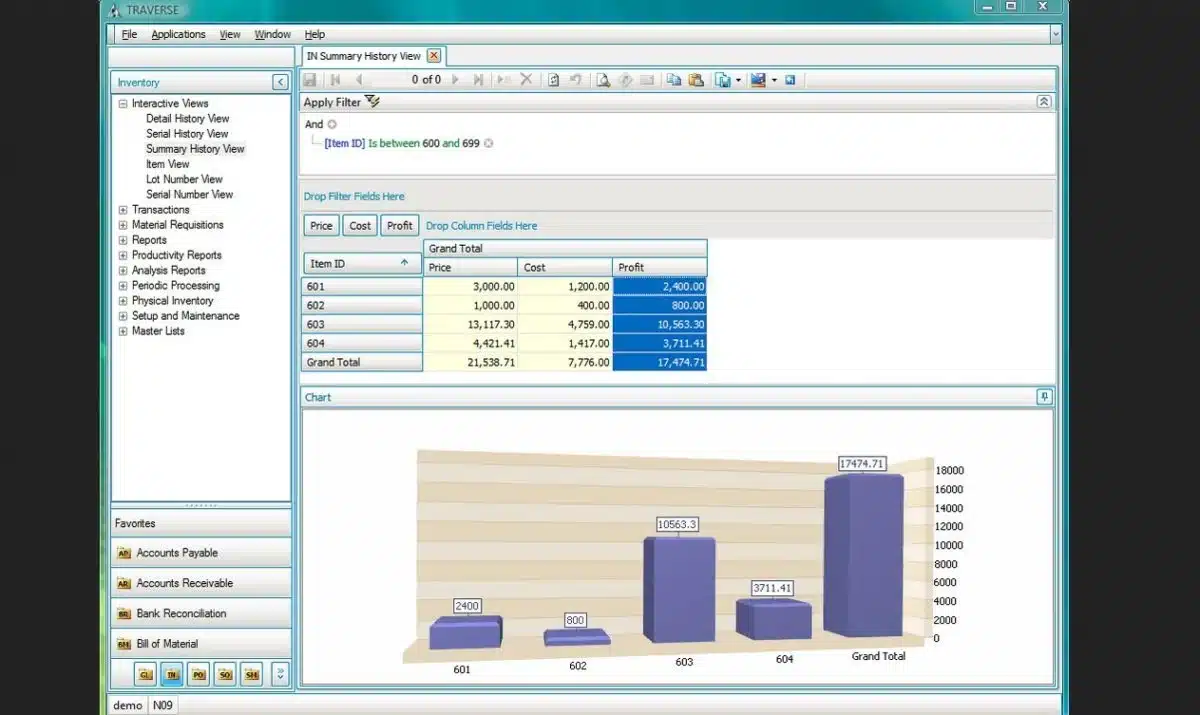Did you know that a study on SMEs in Malaysia found that ERP implementation improved resource allocation by 20%, reduced operational waste by 15%, and increased the accuracy of sustainability reporting by 25%?
For business-to-business (B2B) companies, efficiency is everything; managing inventory, processing orders, and tracking finances all require seamless coordination to keep up with demand.
But with so many ERP options available, how do you choose the right one? The best system should fit your industry, automate key processes, and provide real-time insights without adding unnecessary complexity.
This guide explores the 8 best B2B ERP systems in Malaysia, helping businesses find the right solution to optimize processes, reduce waste, and improve decision-making. If you’re curious to see how one of the options, like HashMicro, works in practice, a free demo is available to explore it further.
Key Takeaways
|
What is an Enterprise Resource Planning (ERP)?
ERP software helps businesses manage important data in one easy-to-use system. Short for “enterprise resource planning,” it organizes and stores information related to CRM, HR, procurement, distribution, finances, orders, and more.
By keeping all data in one place, B2B businesses can work more smoothly without juggling multiple systems. An ERP system prevents errors from conflicting information, ensuring a seamless process from order to delivery.
For large B2B companies, especially in e-commerce, ERP systems can be customized to fit industry needs. This flexibility is among one of many ERP benefits and makes it a powerful tool for managing complex business operations efficiently.
Hashy AI Fact

Need to know!
With Hashy AI, business management becomes effortless, automating tasks, generating real-time reports, and delivering valuable insights instantly through a chatbox.
Request a free demo today!
Benefits of B2B ERP Software
Before choosing a system, it’s important to understand the core value that B2B ERP software can bring to your business. From process efficiency to improved collaboration, here are the key benefits companies can gain through the right implementation.
Increased efficiency
By streamlining business processes and automating repetitive tasks, B2B ERP software helps reduce delays, speed up workflows, and boost operational output. Teams can focus on value-driven work instead of manual, time-consuming activities.
Improved accuracy
With all departments accessing the same centralized database, the risk of duplicate or inaccurate data entries is significantly reduced. B2B ERP software ensures that every business function works with consistent and updated information.
Enhanced decision-making
Access to unified business data gives decision-makers a clearer view of what’s happening across departments. B2B ERP software supports strategic planning by turning raw data into meaningful insights for better business outcomes.
Better collaboration
The system allows teams, suppliers, and customers to stay connected through shared data and controlled access. B2B ERP software improves communication and transparency through tools like automated documentation and live data tracking.
Best 8 B2B ERP Software in Malaysia
As businesses in Malaysia strive for efficiency, B2B ERP systems play a key role in optimizing operations and decision-making. Here’s a look at the top ERP solutions with powerful B2B and e-commerce features.
- HashMicro: Automates workflows and real-time financial insights.
- Microsoft Dynamics 365: Cloud-first approach offers powerful solutions.
- Oracle NetSuite: flexible features cater to various industries.
- SAP: Optimize workflows and improve operational efficiency.
- OrderWise: Supports both offline and online operations for efficiency.
- Katana: Offering real-time production tracking and inventory control.
- Traverse: For various industries, affordable and customizable modules.
- Sage X3: User-friendly dashboard and scalable modules.
1. HashMicro ERP for B2B
Running a B2B business is complex, but HashMicro’s ERP system simplifies everything by integrating your operations into one seamless platform.
It automates workflows, tracks inventory accurately, and delivers real-time financial insights, so you can focus on growth instead of manual tasks.
Designed for wholesale, manufacturing, distribution, and construction, HashMicro’s custom ERP solutions offer automated invoicing, demand forecasting, and efficient supplier management—helping you run smarter and make better decisions.
Features:
- Built-in Business Intelligence: Includes Pivot, KPI Scorecard, Custom BI, and Dashboard Ninja for advanced data analysis and visualization.
- WhatsApp Integration: Enables direct communication through WhatsApp for internal teams and client interactions.
- Sheet Management: Automates document handling in spreadsheet format with seamless data integration across modules.
- Access-Level Control: Restricts data access based on roles, ensuring security and controlled visibility.
- AI-Generated Reports & Explainer: Creates detailed reports, detects cost anomalies, and provides AI-driven insights.
- Restricted User Access: Limits system access to the office Wi-Fi, preventing unauthorized logins.
- Mobile Apps: Allows employees to stay connected and manage ERP tasks remotely.
- Flexible Hosting Methods: Supports both Cloud and On-Premise deployment for adaptable infrastructure options.
| Pros | Cons |
|
|
2. Microsoft Dynamics 365
Microsoft Dynamics 365 is a reliable B2B ERP system that works effortlessly with other Microsoft tools. Designed with a cloud-first approach, it offers powerful solutions for data analysis, CRM, and workflow automation, making it a top choice for enterprises in Malaysia.
Features:
- Smooth integration with Microsoft Office
- Scalable cloud-based infrastructure
- AI-powered analytics and insights
- Comprehensive customer relationship management (CRM)
| Pros | Cons |
|
|
3. Oracle NetSuite B2B ERP Software
Oracle NetSuite is a top cloud-based ERP designed for B2B companies, offering real-time data insights and advanced analytics. Its flexible features cater to various industries, helping businesses scale and optimize their operations in Malaysia.
Features:
- Real-time data tracking and analytics
- Customizable dashboards for better visibility
- Supports multiple currencies and global operations
- Seamless CRM and e-commerce integration
| Pros | Cons |
|
|
4. SAP Business One
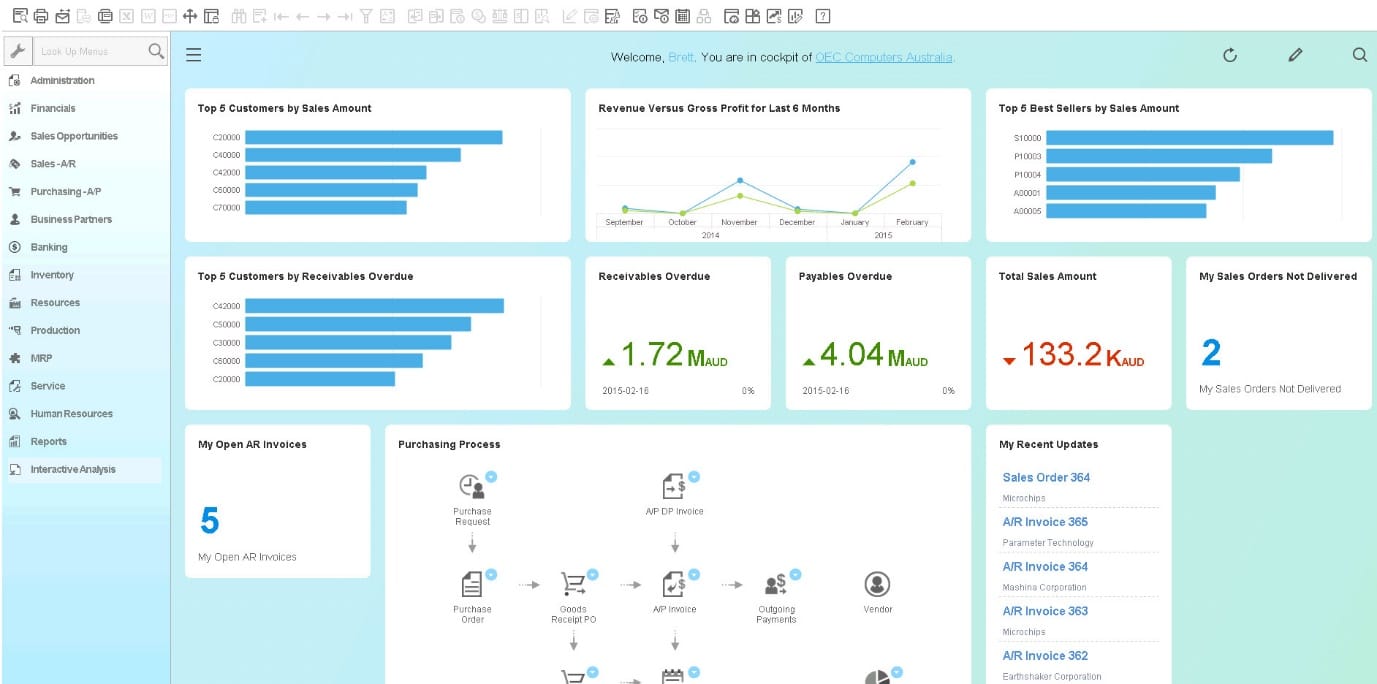
SAP Business One is a powerful ERP solution designed for industries like manufacturing, supply chain, and finance. It helps businesses optimize workflows and improve operational efficiency, making it a strong choice for B2B companies in Malaysia.
Features:
- Advanced tools for manufacturing and supply chain management
- Comprehensive financial management system
- Customizable workflows to fit business needs
- In-depth analytics and reporting capabilities
| Pros | Cons |
|
|
5. OrderWise
OrderWise provides a specialized ERP solution for B2B businesses, with a strong focus on inventory, warehouse management, and e-commerce. It supports both offline and online operations, making it ideal for companies that need efficient stock control and order processing.
Features:
- Advanced inventory and warehouse management tools
- Seamless e-commerce integration for B2B transactions
- Comprehensive reporting and analytics
- Reliable order management system
| Pros | Cons |
|
|
6. Katana
Katana ERP is built for manufacturers, offering real-time production tracking and inventory control. With its modern UI and user-friendly design, it’s ideal for B2B businesses needing an adaptable ERP system that keeps up with changing demands.
Features:
- Live tracking of production processes
- Streamlined inventory management
- Intuitive and modern user interface
- Integration with multiple sales channels
| Pros | Cons |
|
|
7. Traverse B2B Enterprise Software
Traverse provides a versatile ERP system for various industries, with a strong focus on finance, distribution, and manufacturing. Its affordable and customizable modules make it a practical choice for businesses in Malaysia looking to optimize their operations.
Features:
- Advanced financial management tools
- Efficient distribution and supply chain management
- Customizable reports and analytics
- Industry-specific ERP modules
| Pros | Cons |
|
|
8. Sage X3
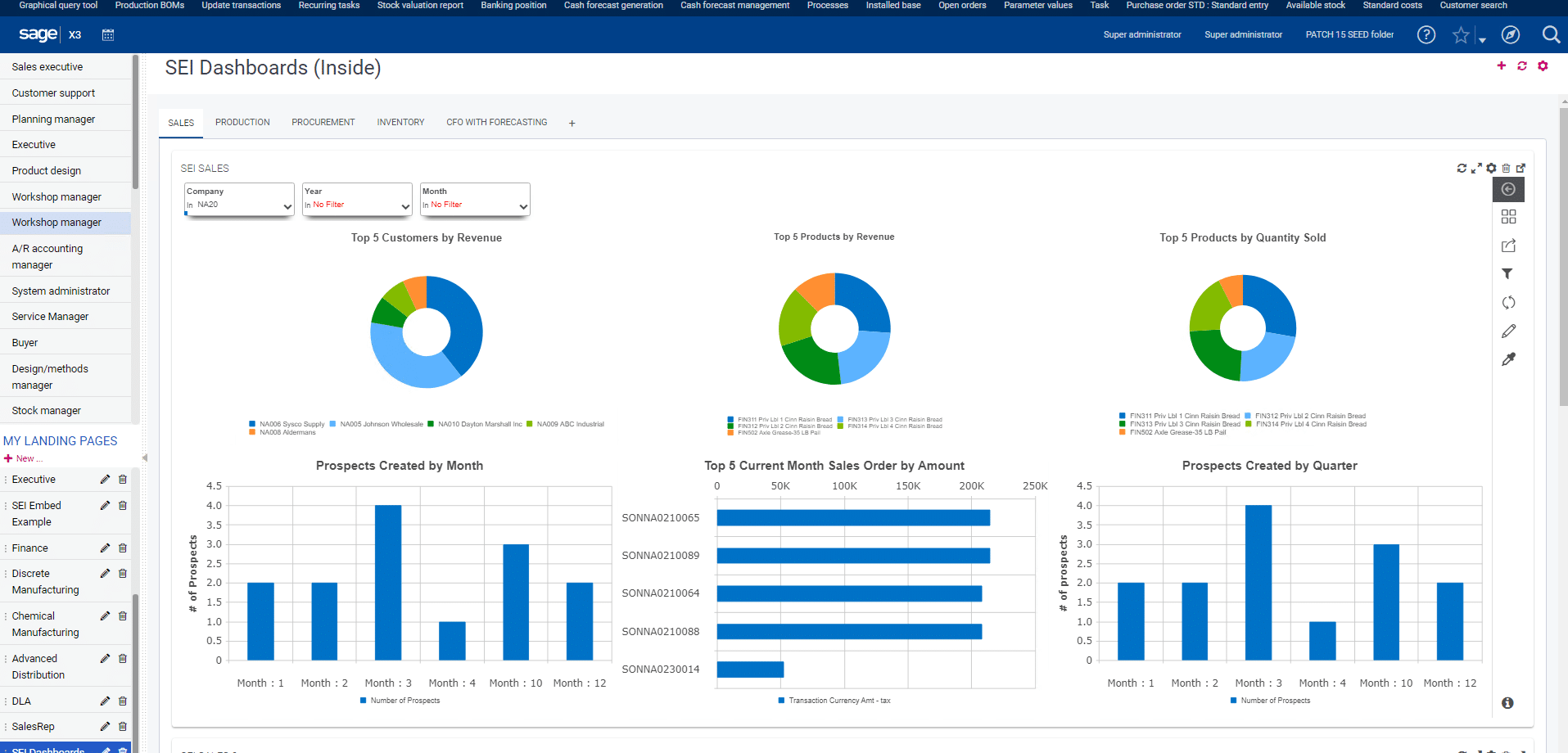
Sage X3 is a versatile B2B enterprise software designed for manufacturing, distribution, and finance. With its user-friendly dashboard and scalable modules, it helps businesses manage complex workflows efficiently.
Features:
- Advanced tools for manufacturing and distribution
- Customizable dashboards for better insights
- Scalable modules to support business growth
- Real-time analytics and reporting
| Pros | Cons |
|
|
Key Modules for B2B ERP Software
Here are some key features of ERP software, grouped by business department:
- Accounting & Finance: Handles tax management, general ledger, financial reports, and transaction records.
- Inventory & Warehousing: Tracks stock, automates inventory management, replenishes stock, manages waves, and integrates with shipping.
- Orders & Fulfillment: Supports invoicing, reporting, payment processing, order tracking, validation, and dropshipping.
- Supply Chain: Manages production data, tracks outstanding orders, analyzes demand, and enables mobile tracking.
- Marketing & Sales: Facilitates client communication, forecasting, cost reporting, workflow management, and project analytics.
- HR Management (HRM): Manages employee records, payroll, attendance, and performance to improve HR efficiency and workforce management.
According to ERP history, it ensures that all departments can access real-time data when needed. For example, in a wholesale business, sales orders created by billing can trigger warehouse shipments. The warehouse manager sees real-time order updates, while accounting tracks revenue and expenses seamlessly.
B2B ERP Software Integration Challenges
A B2B e-commerce ERP system makes business processes smoother, but integrating it isn’t always easy. Ignoring key challenges can lead to messy data, security risks, and disrupted operations. Fixing these issues early keeps everything running efficiently.
1. Old Systems Don’t Always Cooperate
Many businesses still use outdated systems that can’t sync data in real time or automate tasks. Because of this, extra customization is often needed to make everything work together, which adds costs and complicates the setup.
2. Syncing Problems Lead to Confusion
A high volume of orders, inventory updates, and customer details needs to sync correctly. If data doesn’t match up, businesses deal with delays, duplicate entries, or missing records, which mess up order processing and stock management.
3. More Connections Mean Higher Security Risks
An ERP system links multiple platforms, exposing sensitive data to potential hacks and compliance issues. To prevent this, businesses need encryption, strict access controls, and regular security checks to keep everything safe.
4. Messy Data Migration Can Disrupt Operations
Moving huge amounts of product and customer data from old systems to a new ERP can cause formatting errors, missing information, or incorrect records. Without a proper clean-up and validation process, businesses might face unexpected errors that slow everything down.
Tackling these challenges early makes ERP integration much smoother, keeping operations accurate, secure, and ready to scale.
Tips to Choose the Ideal B2B ERP Software for Business
Finding the best B2B ERP software helps improve efficiency and support business growth. With many options available, matching your needs with the right features makes the decision easier.
- Identify What Your Business Needs: List your key requirements, such as supply chain tracking or sales management, and choose an ERP that covers these areas.
- Focus on Task Automation: Look for ERP software that automates invoicing, order processing, and payroll to save time and reduce errors.
- Check Reporting and Data Analysis Features: Pick an ERP with strong reporting tools to track production, sales, and customer trends, helping with better decision-making.
- Ensure Real-Time Data Tracking: Choose a system that provides live inventory and supply chain monitoring so you can quickly spot issues and improve operations.
- Look for Integrated CRM Features: An ERP with built-in CRM makes it easier to manage customer interactions and improve customer relationships.
- Check for e-commerce Compatibility: If your business involves B2B e-commerce, ensure the ERP system integrates smoothly with your platform for better data flow and efficiency.
- Consider Customization Options: Since every business is different, pick an ERP that can be customized to fit your specific needs as your company grows.
- Assess Customer Support and Training: Reliable support and training make it easier to set up and use the ERP system. Choose a vendor with accessible help resources.
If you want to see wider, more general-purposes ERP recommendations for various industries in Malaysia, you can read on our article that discusses in detail about ERP software.
Conclusion
Managing a B2B business is complex, but the right ERP system makes everything smoother. By integrating inventory, sales, and finance, an ERP ensures seamless data management and smarter decision-making, helping businesses stay ahead.
For companies in Malaysia, HashMicro’s ERP system stands out with its user-friendly interface and all-in-one features. Designed for B2B e-commerce, it simplifies inventory tracking, financial management, and department-wide integration, making business operations more efficient.
Want to see how it works? Try HashMicro’s ERP system with this free demo and experience firsthand how it can optimize your business and drive growth in a competitive market.

Frequently Asked Questions on B2B ERP Software
-
What are the key benefits of integrating ERP with eCommerce platforms in a B2B context?
Integrating ERP with e-commerce platforms streamlines operations by automating orders, inventory, and customer data synchronization. This leads to improved efficiency, real-time data access, and a seamless customer experience.
-
How does an ERP system enhance inventory management for B2B companies?
ERP systems provide real-time inventory tracking, helping businesses balance supply and demand effectively. This visibility allows for quick adjustments, reducing overstocking or stockouts, and optimizing overall inventory levels.
-
How can a B2B customer portal within an ERP system benefit businesses?
A B2B customer portal offers clients a self-service environment to place orders, track shipments, and manage their accounts. This enhances customer satisfaction and reduces the administrative burden on the business.
-
What challenges might a B2B company face when integrating an ERP system?
Common challenges include data migration issues, ensuring compliance and security, and integrating with existing legacy systems. Addressing these challenges requires careful planning, stakeholder involvement, and continuous monitoring to adapt to changing business needs.






